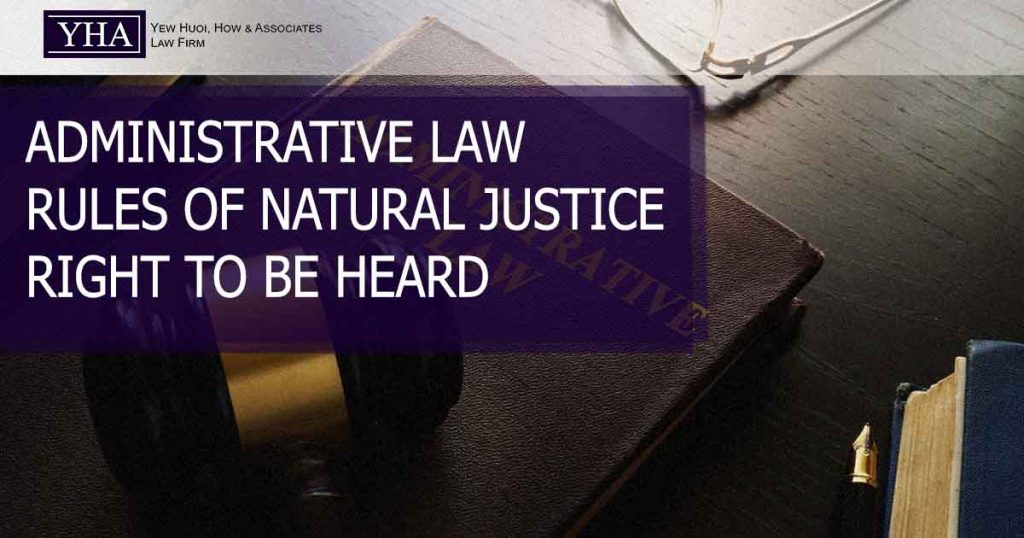What is administrative law in general?
- Administrative law is a large field of law that deals with the agencies that are in charge of a variety of government projects. Administrative law governs agencies, commissions, and boards. Administrative law is frequently encountered by the public in the context of a public benefit that has been refused or terminated.
When can natural justice be claimed?
- .In judicial, quasi-judicial, and administrative systems, two norms have evolved over time to embody natural justice principles: 1) ‘Nemo debet esse judex in propria causa,’ which states that no one should be judged in his own cause, and 2) ‘audi alteram partem,’ which states that no one should be condemned without first hearing their side of story.
Q. In the recent case of Nurul Rifayah bt Muhammad Iqbal & Ors v Tan Sri Dato’ Hj Mahiaddin bin Md Yassin & Ors [2021] 12 MLJ 510 the voting rights has been reduced from 21 to 18 years old and will be taken effect starting from July 2021. However, it has been delayed till September 1, 2022 due to the Movement Control Order. This has affected the youth in Malaysia as the Malaysian youth organisation (UNDI 18) has been fighting for these issues. Does this sound fair to you?
A. If you were in this position, the best way to deal with it is to request the court for a judicial review regarding the issue faced by you. However, there are a few steps that the court will look into before granting judicial review. This will avoid frivolous or vexatious claims made by the appellant. Hence, O 53 r 2(4) of the Rules of Court 2012 will be read by the court during the two stage test to request leave from the court. Once the court sees nothing wrong with proceeding on the judicial review, leave will be granted.
What are the remedies available for judicial review?
- Habeas corpus, certiorari, prohibition, and mandamus are examples of public law remedies. In Malaysia, habeas corpus is a well-known prerogative writ that is frequently used to challenge the validity of an ISA detention decision. Regardless of nationality, anybody or someone acting on their behalf can appeal such a writ. In general, a writ of habeas corpus will be issued if the applicant can show that the custody is illegal and that the process of bringing the prisoner to trial is taking too long. It should be remembered that one must appear before a magistrate within 24 hours of being detained.
- Certiorari, which means “quashing order,” is a retroactive order that brings a decision made by the authority before the court and asks that it be overturned. Prohibition, on the other hand, is a future command to overturn a decision that is about to be made. It is important to remember that failing to comply with such an order constitutes criminal contempt of court. Meanwhile, mandamus is used to compel the decision–making body to undertake public tasks that it has failed to do. It is enforced to guarantee that public officials carry out their responsibilities. Both certiorari and mandamus can be sought concurrently.

